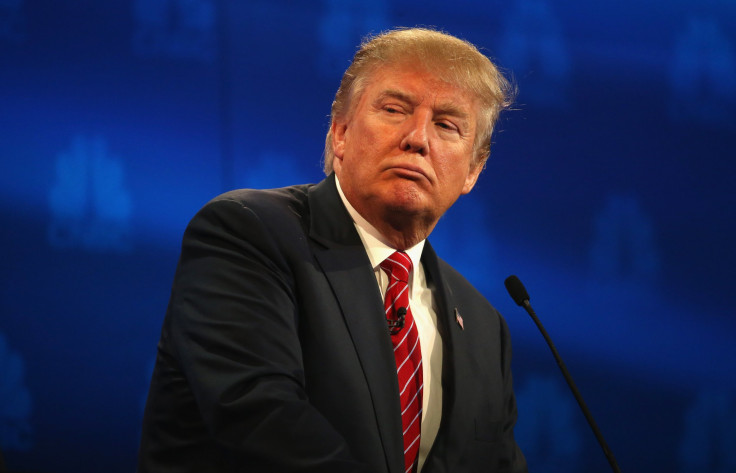Election 2016: Donald Trump Seeks Change In Laws On Torture ‘To Beat The Savages’

Republican presidential hopeful Donald Trump Sunday defended his position on torture, saying he never would ask American troops to violate the law but adding laws have to be revised.
Trump, appearing on “Fox and Friends” and CBS’s “Face the Nation,” said terrorists are playing with a different set of rules and actions need to be taken to level that playing field.
“It’s ridiculous that we have laws and ISIS doesn’t,” Trump said. “We have very strict laws. I want to open up those laws.”
The Islamic State group, also known as ISIS, has broadcast its beheadings of hostages and killed a Jordanian pilot by locking him in a cage and setting it afire.
Trump has said he would approve the use of waterboarding to obtain information and indicated he’d be open to torture. He moderated his stance in recent days, saying he would never order American forces to violate laws or treaties in the fight against terrorism.
Trump said he thinks terrorists look at Americans as weak because we are debating the issue while they don’t hesitate to “chop off heads” and drown people locked in cages.
“General Patton would have put ISIS down in three days,” Trump said.
“We have to beat the savages. You have to play the game the way they’re playing the game [otherwise] you’re not going to win. … They’re chopping, chopping, chopping and we’re worrying about waterboarding. Our priorities are mixed up.”
In an interview on CNN’s “State of the Union,” Trump rival Sen. Marco Rubio of Florida said a commander in chief “will never should ask the military to violate the rules of war.” He noted, however, the rules applied to questioning criminal suspects should not be applied to terrorists.
“This is not about torture, but you cannot use the same interrorgation techniques on a terrorist that you use on a criminal. When you are interrogating a criminal what you are trying to do is gather evidence for a trial. … When you are interrogating a terrorist, what you are trying to do is to gather information to prevent a future terrorist attack,” Rubio said.
© Copyright IBTimes 2024. All rights reserved.












